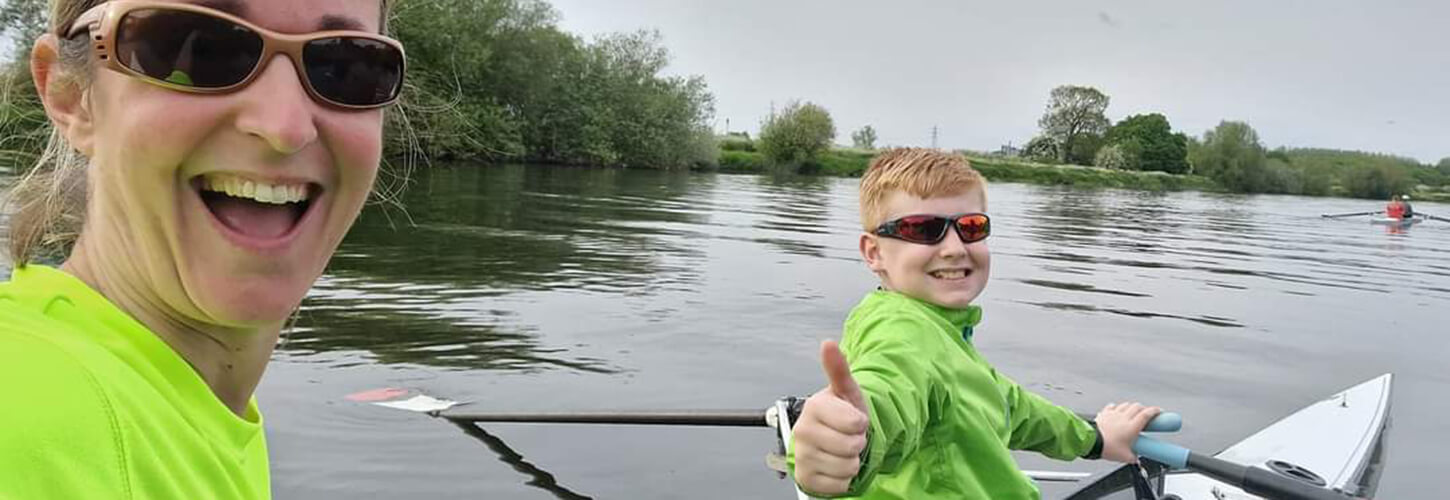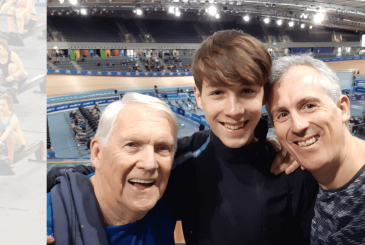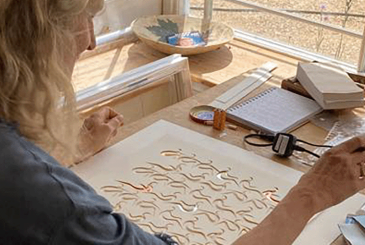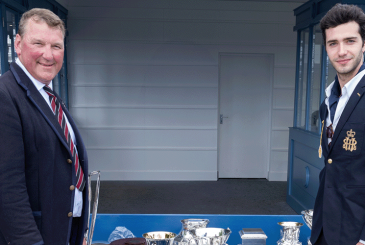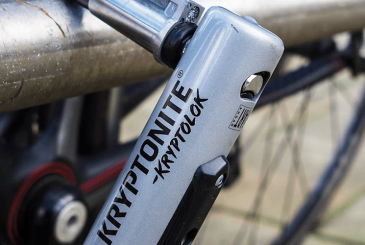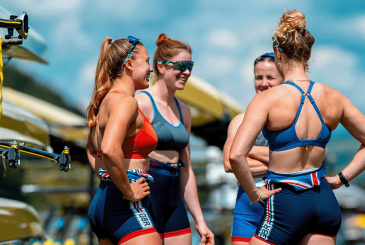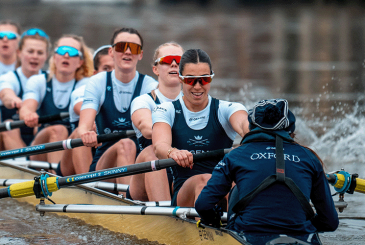Lebby Eyres, a rower and also mum of young rowers, talks to other parents who row about how to make it work when you have children – and how to manage your time when the kids take up rowing, too!
Rowing is renowned for its ‘faff factor, so it might not be the first sport we think of that would work well with parenting. Long hours spent at the river, coupled with midweek training, either means an angry other half or disgruntled offspring.
Or does it?
Many parents – including me – make it work, even when both Mum and Dad row. Although our kids not say this out loud, we’ve discovered our tweens and teens find it inspiring – and before you know it, they’re rowing too.
But to avoid family strife, there’s plenty of advice the rowing parent should heed…
A parent’s right to row
There’s nothing selfish about wanting ‘me’ time on the river. Women like me – who learned to row at university – and men too often return to the sport or take it up in midlife once kids are more independent. It gives us respite from the pressure of busy jobs, brings plenty of health gains and makes us feel young again. And there’s plenty of evidence that sporty parents mean sporty kids.
I managed to inspire both my daughter Inès and son Vincent to row, and the plusses are huge. My knowledge means I can support them emotionally when the going gets tough, while I benefit from their up to date tips (as my technique is 30 years out of date, apparently).
Not that there aren’t minuses. My long-suffering and non-rowing husband Fred is a ‘rowing widower’; there’s a huge amount of washing to do and chicken breasts to cook plus race fees and subs do pile up. We don’t even row on the same water (I train at Lea HQ in Hackney, the juniors at the Docks), so I often have to miss the 7am weekend outing at the club to do the Docklands drop off.
But that’s all outweighed by the simple, unifying joy of (nearly) everyone being involved in the same sport – and we couldn’t do it without Fred being our back-up team.
The childcare challenge
Rowing as a parent is obviously more straightforward with secondary school kids (who also fit in the cox’s seat!). But what if your children are babies or toddlers? Back in the ’90s, my Tideway Scullers crew operated an informal babysitting service in our break between outings so that the mums could have a quick scull.
Dad of two and personal trainer Andy Coyne has been rowing for almost 20 years at Mersey RC. When son Jonah, now 14, arrived, he says, “My wife and I made the decision we didn’t want to give up the things we enjoyed, but we acknowledged all of it would be too much.
“Putting the baby down for a half hour and exercising at home was more realistic than getting to the gym”
“Putting the baby down for a half hour and exercising at home was more realistic than getting to the gym. So we cancelled our gym membership, and bought our rowing machine, dumbbells and some barbells, and an exercise bike. I could still go rowing, my wife could go to choir and the football. Diarizing became really important.”
Now Jonah and younger brother Abraham are rowing, Andy tries to alternate his race days with theirs. But his biggest tip is learn to scull. “I can row when I want to and that gives a lot of freedom and flexibility especially when the kids are little.”
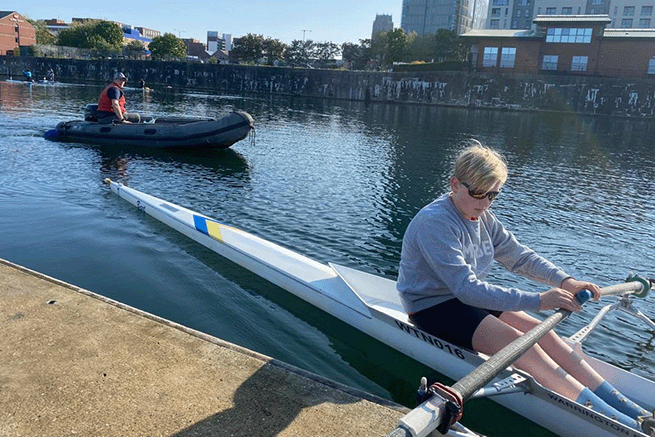
When both parents row
John Leighton and his wife Nicola, have two children, Ava, 14, and Hattie, seven. He returned to the sport 11 years ago, and has inspired both Nicola and Ava to start at City of Cambridge RC.
He says, “When you learn to row, there’s a couple of years when you dedicate a lot of time to get in a good boat. So I made the decision that if there was a clash of outings, Nic would win.”
“Our oldest looks after our youngest for an hour or two”
When the kids had Saturday morning clubs, “logistics were key”. He says, “On the weekend, one of us would have an early outing, then we’d meet on the hard and swap a child over.”
Midweek training is an issue, and John says, “When the kids were younger, it was harder, because one of us would need to be at home, or you’d have to call in babysitting favours, and you’d rather call those in for a big night. Now our oldest looks after our youngest for an hour or two, and on Thursday my wife and I do weights at the club together.”
What happens when everyone rows?
Amy and Phill both row for Burton Leander, as does son Jacob, 13. Amy started after, “a personal trainer suggested I try rowing in real life”, then Jacob joined in two years ago, and Phill 18 months ago.
Phill says, “Even when I wasn’t rowing I’d be helping carry boats and derigging, loading and reloading. You’re part of the community. Now we’re usually all rowing or competing [at the weekend].”
Their key to making it work is communication. As Phill says, “The starting point is you’re all competitive and you all want to race, but someone will always have to be flexible.”
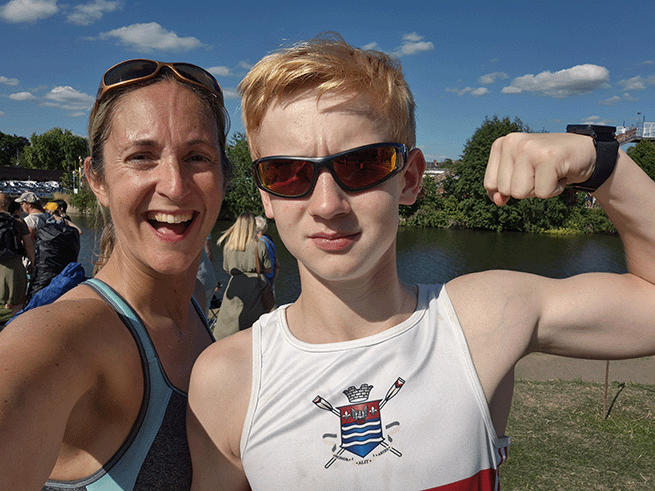
On Tuesdays and Thursdays when Amy and Phill are training, the grandparents help out. And on Wednesdays, Amy’s started coaching the juniors: “I was taking Jacob and started to get involved. Otherwise I’d have been twiddling my thumbs.”
Like me, Phill finds competing easier than watching his wife and son: “I feel more nervous watching these two than I do when I’m sat on the start line doing my own race.”
Our children inspire us
Sometimes, it’s the child who inspires the parent. Debbie Lloyd Smith and her daughter Teagan, 18, both row for Northampton RC – after a conversation in the kitchen about sports for tall people sparked an obsession.
“Needless to say, my life has changed.”
Debbie says, “It was supposed to be a hobby, but now Teagan’s taking it seriously. Needless to say, my life has changed. I did a lot of waiting for her. Then I began to help with boats and throw lines. Then I thought I’d give it a go.”
Now Debbie is in crew boats, mastering single sculling and coaching. With the club an hour’s drive away, organisation is a must. “In the boot of my car we have the blanket, the neck cushion, the eye masks and chair. We’ve got the toolbox. And the rack for the boat,” she says.
And while older son Riley was at home, it was a question of divide and conquer – husband Chris would take him to boxing, with Debbie looking after Teagan. After a long weekend morning at the river, they arrive home to baked potatoes cooked by Chris. Team work makes the dream work, after all!


